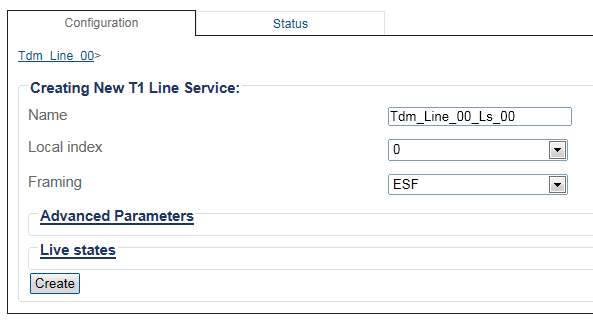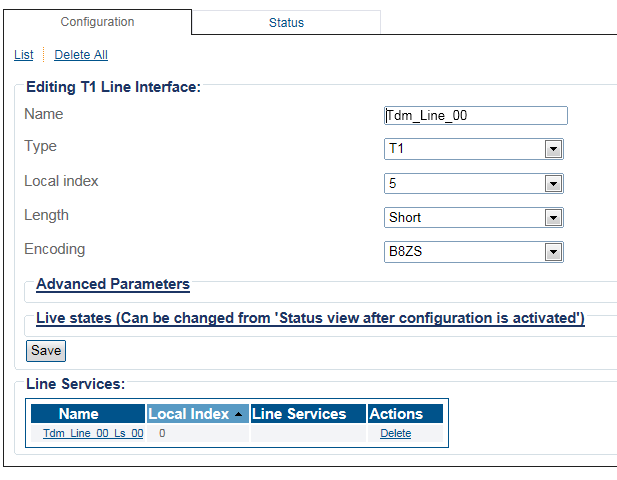Toolpack:Creating a Line Service C
From TBwiki
(Difference between revisions)
(→Applies to version(s): v2.8.) |
m (fix typo) |
||
| Line 2: | Line 2: | ||
{{DISPLAYTITLE:Creating a Line Service}} | {{DISPLAYTITLE:Creating a Line Service}} | ||
| − | A line service defines the type of paylaod that a line interface carries or it defines another line service. The definition of a | + | A line service defines the type of paylaod that a line interface carries or it defines another line service. The definition of a line service ends when it reaches the E1/J1/T1 line service. |
The E1/J1/T1 line services are also known as trunks or spans. | The E1/J1/T1 line services are also known as trunks or spans. | ||
Revision as of 15:06, 2 April 2015
Applies to version(s): v2.8.
A line service defines the type of paylaod that a line interface carries or it defines another line service. The definition of a line service ends when it reaches the E1/J1/T1 line service.
The E1/J1/T1 line services are also known as trunks or spans.
To create a new line service:
1- Select TDM Line Interfaces from the navigation panel
2- Select the line interface for which you would like to create a line service.
3- Create the new Line Service:
- Enter a name for the new line
- Select a line service type
- Select an available local index, from the drop-down box
- Select appropriate framing and loopback modes
- Click Create
5- The new line service is displayed in the Line Services list



